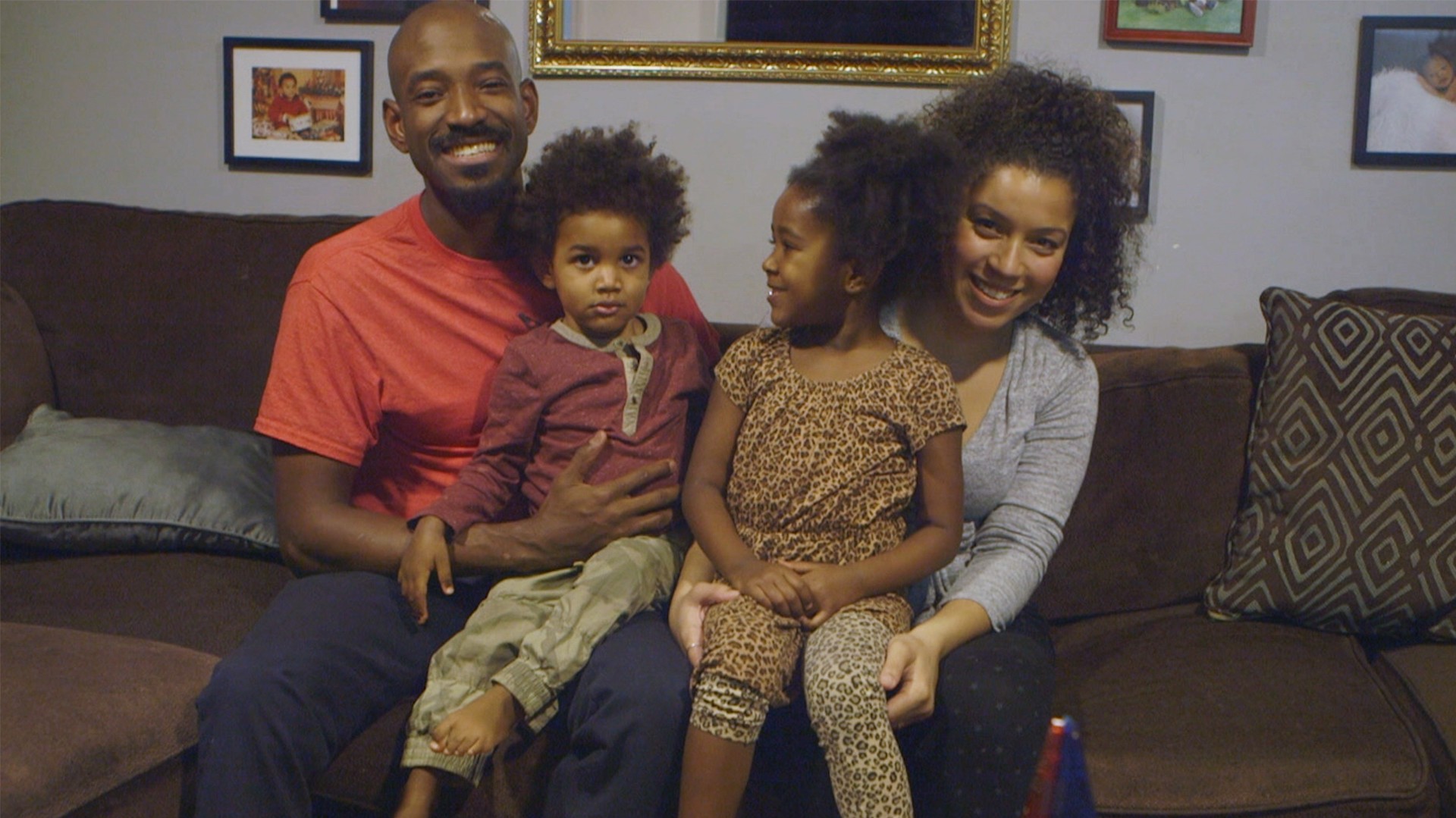Jenn Evelyn-Ann
Growing up, I hoped I’d be a mother someday. Now I’m a mum of two—and it’s great. I’m also something I never gave too much thought to: a stepmother. A wicked stepmother? Well, that depends on who you ask.My partner’s sons were three, four, and five when I first met them, on a nerve-wracking rainy Sunday. The boys showed off and talked at me incessantly and made my day by asking me to stay longer. That was almost 18 months ago, and my home is now our home, and the boys’ second home. Every other weekend, our house swells with the energy and laughter of our five children. It’s challenging and exhausting and noisy and joyous and rewarding. Then three of the five go back to their mother, the house becomes quieter, and we miss them until they come again.While we try to make the best of the situation we’ve found ourselves in—five kids who divide their time between two homes and who aren’t yet old enough to understand why their parents didn’t, couldn’t, or wouldn’t stay together—we can only control a fraction of what our kids hear. We have no control over what goes on in their other home. We’re lucky that I have a good relationship with my children’s dad and that he’s understanding and supportive of our blended family. It’s a different story entirely with my stepkids’ mother.For the record, I'm really not a wicked stepmother. I try hard to be a pretty good one, in fact. I try to have a positive impact on the boys, taking my cues from them to figure out what they need from me—be it attention, affection, space, or the the ultimate, universally accepted, stepmother duty: more candy when their dad’s back is turned.The boys appear—to me, and to their dad, and to anyone else who witnesses them in our home—to be happy and comfortable. They are always pleased to arrive and, on occasion, reluctant to leave. While they are here, they laugh. A lot. They jump on our bed and stick their fingers in my makeup and jab my keyboard with those same sticky fingers. It’s all fun and games until one of them pauses and looks at me and says, “Mummy says you’re horrible.”Mummy says I’m horrible despite the fact she doesn’t know me. She has never met me. The extent of our direct contact has been one phone call, during which she accused me of breaking into her house and stealing two whisky glasses. (Ironically, I have never drunk whisky in my life.) Yet I feel her presence constantly, and not only when the small people who have 50 percent of her DNA are jumping on our bed. Until my partner blocked her from all electronic communication, weary from years of abuse, she emailed and texted him regularly to tell him how awful I am, how much her children hate me, how reluctant they are to spend time in our home. Her words are not reflected in her children’s behavior, but they still sting, because I’m human.“While this hatred isn’t good, it’s not uncommon,” says Melanie English, a Washington-based licensed clinical psychologist who regularly provides family courts with parenting plan evaluations for divorced and separated parents. “Roles have shifted and there are now two female counterparts when there was only one before. Mom may inadvertently despise Stepmom because Mom really despises Dad and Stepmom is a reminder of that failed relationship. It may not be about Stepmom at all.”
More from Tonic:
This makes sense. I know it’s not really about me because she doesn’t know me. But it’s still a huge trigger for my mental health issues. I’ve had depression for over 20 years and I've become pretty good at managing it and avoiding triggers. But I wasn’t prepared for this situation because it was so unlike anything I’ve experienced before. For the first time in my life, I’m trying to deal with negativity (what the hell, inadvertent or not, it’s full-on hatred) from someone who isn’t physically in my life.It’s tougher than dealing with aggression, derision, or disrespect from someone I know, because I can’t do anything about it. I can’t just text her and say, “Hey, what’s up? Let’s have a coffee and sort this out,” the way I could if she was a friend I’d pissed off. I can’t try to forget that she exists, either—because I’m going to be in her kids’ lives forever.The more I think about it, the more my stress levels soar, and a lot of it is because I feel a complete lack of control in this situation. Obviously it’s harder for my partner, to be caught up in the world’s longest domestic dispute. But he, at least, is one of the main characters in this tragedy. As the stepmother, it feels as if I’m just a minor character who has no influence on how events develop. I sometimes wonder if their mother is right when she says I am “nothing” to her children. I am not their parent and I came on the scene long after they were born, long after their parents’ marriage took its last desperate breaths.I try to stay silent, but it doesn’t always work. I want to grab some lines for myself. So I shout back, and then regret it. Because these three little boys already have two warring adults in their lives. What choice do I have, but to put up with the lies and the wild accusations and being called a slut? Because the boys love her and they will hate me if I even suggest she may have acted unacceptably.“Don’t talk about Mom, and don’t be curious if she is talking about you—enjoy the children and keep their time focused on who they are with,” English tells me. “You could turn the kids against yourself if you are engaging in any negative discussion about their mom.”And as for my relationship with the kids, English has some reassuring words. “The more people who love the children, the better,” she says. “Children have a natural bond with their mom but may have an entirely different kind of relationship and bond with their stepmom. These two relationships are so different that they really can’t be compared or contrasted—so don’t do that. If their mom tries to wreck it, be the rock for the stepkids that they need. Take the high ground for the kids’ sake—they will learn this from you, and learn how to act in the face of adversity.”English doesn’t believe I’m powerless in this situation, though. “You actually have the power to defuse anything Mom says or does by not giving any power to Mom’s negative words or actions,” she says. “Learn to bounce off any negative comments as much as possible and not process them directly with the children. Have a one liner ready at any time, such as ‘I understand your Mom doesn’t know me very well [or like me very well], but I love you and I want to support you.’” She tells me to “be the broken record” with this message. The kids will hear it enough to know it's authentic.So it turns out I don’t play as useless of a role as I thought. How I respond to the negativity is crucial—both for my well-being and that of the three young boys caught in the center of this drama. English reiterates what I already know to be true: “If there is a negative relationship forming, try to disengage. Don’t be tempted to get involved in communications, emails, arguments or calls between the mom and your partner.” She says this creates a “two against one” scenario which will only complicate things.I know we live in a world where I’m not going to be having coffee with this woman any time soon. But I also know I’ve done nothing wrong. I will carry on caring for these children when called upon to do so. It may take years or even decades for them to have the experience and the knowledge and the freedom to form their own true opinions of me. In the meantime, those fleeting moments that they see me through their own eyes, and not the emotional scrutiny of an adult, those moments when they tug on my arm and say, “I’ve missed you” are more than enough.Read This Next: Why Do Divorces Seem to Run in Families?
Advertisement
Advertisement
More from Tonic:

This makes sense. I know it’s not really about me because she doesn’t know me. But it’s still a huge trigger for my mental health issues. I’ve had depression for over 20 years and I've become pretty good at managing it and avoiding triggers. But I wasn’t prepared for this situation because it was so unlike anything I’ve experienced before. For the first time in my life, I’m trying to deal with negativity (what the hell, inadvertent or not, it’s full-on hatred) from someone who isn’t physically in my life.It’s tougher than dealing with aggression, derision, or disrespect from someone I know, because I can’t do anything about it. I can’t just text her and say, “Hey, what’s up? Let’s have a coffee and sort this out,” the way I could if she was a friend I’d pissed off. I can’t try to forget that she exists, either—because I’m going to be in her kids’ lives forever.The more I think about it, the more my stress levels soar, and a lot of it is because I feel a complete lack of control in this situation. Obviously it’s harder for my partner, to be caught up in the world’s longest domestic dispute. But he, at least, is one of the main characters in this tragedy. As the stepmother, it feels as if I’m just a minor character who has no influence on how events develop. I sometimes wonder if their mother is right when she says I am “nothing” to her children. I am not their parent and I came on the scene long after they were born, long after their parents’ marriage took its last desperate breaths.
Advertisement
